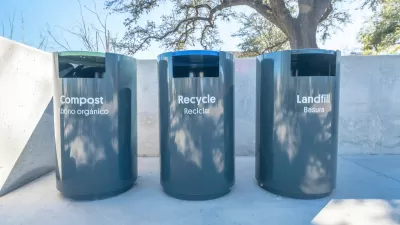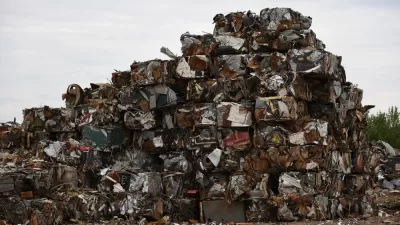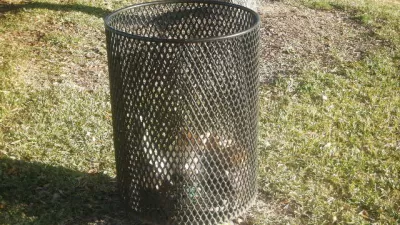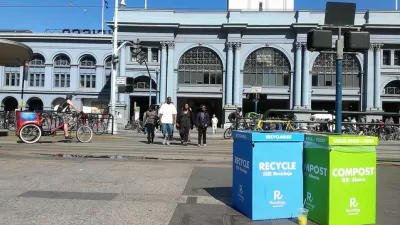Zero Waste

Austin Reveals New Zero Waste Plan
The city aims to eliminate the majority of landfill waste by 2040.

EPA Awards $4 Million for Baltimore Composting Facility
The city wants to build the nation’s largest composting facility as part of its ‘zero waste’ efforts.

Community Composting Network Launching in Philadelphia
The city of Philadelphia is seeking 25 locations around the city for composting facilities that will help the city achieve its goals of zero waste and litter.

Striving for a Zero-Waste Future
A number of U.S. cities have set ambitious zero-waste goals, but reaching targets has been challenging. Turning waste into a viable commodity is one strategy to get materials out of the waste stream.

Nudging People to Keep Cities Clean
Philadelphia looked at how interventions can change recycling and littering behavior.

San Francisco Wants Its Ambitious Zero-Waste Initiative to Go Global
In an effort to address climate change, San Francisco has a plan to get residents and businesses to do more than just recycle and compost.

OneNYC Plan Released in New York
Meet the new plan; it's not like the old plan.
First New U.S. Waste-to-Energy Plant in 20 Years to Open in Florida
Waste-to-energy plants, or incinerators, are classified as renewable power plants by the EPA. A controversial Baltimore plant is under construction as well. More common in Europe, they may be catching on stateside due to low recycling rates.
The Incredible Climate Mitigation Potential of Compost
Research has shown that the world's largest land use, grazing, holds enormous potential when linked with composting, to dramatically reduce the carbon content of the atmosphere through sequestration while concurrently restoring degraded rangeland.
Minneapolis Sets Zero Waste Goals
The Minneapolis City Council is considering steps that would increase the amount of its waste stream that gets recycled.

San Francisco Enacts Plastic Water Bottle Ban
First came plastic bags, then styrofoam cups, and now, plastic water bottles—though the ban is not as far-reaching as the former two in that it is restricted to sales on city property, including street fairs.
On Survivalism and Autonomy in the Built Environment
Architecture professor William W. Braham examines the growing trend of "self-powered", "zero-energy" and "zero waste" buildings through the lens of survivalism.
City Gives Incentives To Recycle
In Corpus Christi, Texas, officials have entered a public-private partnership to give people more reasons to recycle.
Toughest Recyclers In the West (Or Anywhere)?
The city of San Francisco approves a plan to require composting and recycling citywide by this fall, with fines kicking in within two years.
Urban Design for Planners 1: Software Tools
This six-course series explores essential urban design concepts using open source software and equips planners with the tools they need to participate fully in the urban design process.
Planning for Universal Design
Learn the tools for implementing Universal Design in planning regulations.
planning NEXT
Appalachian Highlands Housing Partners
Mpact (founded as Rail~Volution)
City of Camden Redevelopment Agency
City of Astoria
City of Portland
City of Laramie


































